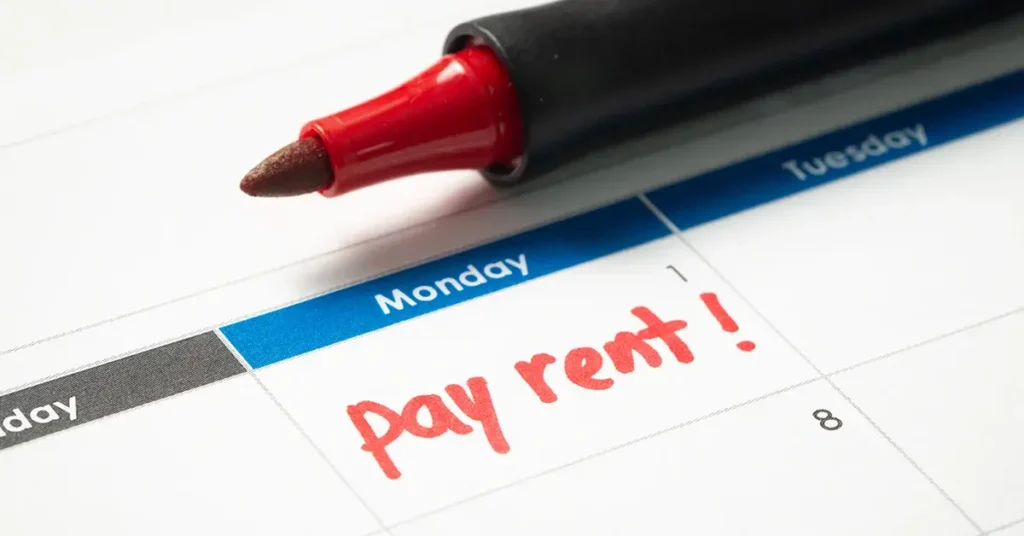Managing rental properties can be a rewarding investment, but it also comes with a significant amount of work. From finding and screening tenants to handling maintenance requests and navigating legal complexities, the responsibilities can quickly become overwhelming. This is where property management companies come in. They act as a bridge between property owners and tenants, handling the day-to-day operations of rental properties. But how do property management companies work, and are they the right fit for you? This comprehensive guide will break down everything you need to know.
What is a Property Management Company?
A property management company is a professional service that oversees the operation of residential, commercial, or industrial real estate on behalf of the owner. They act as a liaison, handling a wide range of tasks related to the property, allowing owners to enjoy the benefits of real estate investment without the constant hassle. Think of them as the all-in-one solution for landlords who want to maximize their return on investment while minimizing their workload.
Who Should Hire a Property Manager?
While some landlords prefer a hands-on approach, many find that partnering with a good property management company is the best decision for their situation. Consider hiring a property manager if you:
- Own multiple properties: Juggling the responsibilities of several rentals can be incredibly time-consuming. A property manager can streamline operations and ensure consistent management across your portfolio.
- Live far from your property: Managing your properties remotely can be challenging. A local property manager can handle on-site issues quickly and efficiently.
- Lack the time or expertise: Property management involves various tasks, from marketing and tenant screening to maintenance and legal compliance. If you’re short on time or unfamiliar with these areas, a property manager can provide valuable support.
- Prefer a hands-off approach: Some investors simply prefer to be less involved in the day-to-day management of their properties. A property manager allows for a more passive investment experience.
- Struggle with tenant relations: Dealing with tenant issues, such as late rent payments or maintenance requests, can be stressful. Property managers are experienced in handling these situations professionally and effectively.

Understanding Different Property Types
Property management isn’t a one-size-fits-all endeavor. Different property types have unique characteristics and require specialized management approaches. Understanding these distinctions is crucial for both real estate investors and property managers. Here’s a breakdown of some common property types:
Residential Single-Family Homes
These properties include detached houses, townhouses, and condominiums designed for individual families or individuals. Management considerations often focus on tenant relationships, individual maintenance needs, and compliance with local homeowner association rules, if applicable.
Residential Multi-Family Units
This category encompasses apartment buildings, duplexes, triplexes, and other structures with multiple dwelling units within a single building or complex. Management of multi-family properties involves handling a larger number of tenants, managing shared amenities, and addressing common area maintenance. Economies of scale can often be achieved in multi-family management.
Commercial Properties
These properties are used for business purposes and include office buildings, retail spaces, shopping centers, and restaurants. Commercial property management involves negotiating leases with business tenants, managing common areas, and ensuring compliance with zoning regulations and business licensing requirements. Tenant relationships are often more transactional and lease terms tend to be longer.
Industrial Properties
Industrial properties are used for manufacturing, warehousing, and distribution. These properties can include factories, warehouses, and distribution centers. Industrial property management requires specialized knowledge of zoning regulations, environmental regulations, and the specific needs of industrial tenants.
It’s important to note that Rhino Property Management specializes in managing residential single-family homes and multi-family units. Their expertise lies in understanding the nuances of these property types and providing tailored management services to meet the specific needs of homeowners and investors in the residential market. While other property management companies might handle commercial or industrial properties, Rhino focuses on what they do best: residential.
What are the Benefits of Hiring a Property Management Company?
Partnering with a property management company offers a multitude of benefits, including:
- Reduced Stress: One of the biggest advantages is the peace of mind that comes with knowing your property is in capable hands. You can free yourself from the constant demands of property management and focus on other priorities.
- Time Savings: Property management is a significant time commitment. By outsourcing these tasks, you can reclaim valuable time and focus on other aspects of your life or business.
- Professional Marketing and Tenant Screening: Property managers have the resources and expertise to effectively market your property to potential tenants. They also conduct thorough screening processes, including background checks and credit reports, to minimize the risk of problem tenants.
- Efficient Rent Collection: Property managers implement systems for collecting rent on time, reducing the likelihood of late payments and maximizing your cash flow.

- Maintenance and Repair Management: Property managers have established relationships with contractors and can handle maintenance and repairs efficiently and cost-effectively. They often have access to preferred pricing and can ensure that work is completed to a high standard.
- Legal Compliance: Property management companies are knowledgeable about landlord-tenant laws and can help you navigate legal complexities, reducing the risk of disputes and potential lawsuits.
- Improved Tenant Retention: By providing excellent service and addressing tenant concerns promptly, property managers can foster positive tenant relationships, leading to higher retention rates and reduced vacancy periods.
- Maximizing ROI: Ultimately, the goal of a property management company is to maximize your return on investment. They achieve this through efficient operations, minimizing expenses, and attracting and retaining quality tenants.
- 24/7 Availability: Many property management companies offer around-the-clock availability for emergencies, providing peace of mind for both you and your tenants.
How Much Does a Property Management Company Cost?
Property management fees typically range from 8% to 12% of the monthly rental income. However, this can vary depending on several factors, including:
- Location: Fees may be higher in competitive markets.
- Property type: Managing commercial properties may cost more than residential properties.
- Services included: Some companies offer a basic package, while others provide a more comprehensive range of services.
- Number of units: Managing multiple units may result in a lower percentage fee per unit.
In addition to the monthly management fee, some companies may charge other fees, such as:
- Tenant placement fee: A one-time fee for finding and screening a new tenant.
- Lease renewal fee: A fee for renewing a lease with an existing tenant.
- Maintenance markup: A percentage added to the cost of maintenance and repairs.
- Eviction fee: A fee for handling eviction proceedings.
It’s crucial to carefully review the fee schedule and understand all costs involved before hiring a property management company.

How Rental Properties Generate Income for Landlords
Rental properties serve as a powerful investment vehicle, generating income for landlords through several key avenues. If you’ve ever wondered how rentals make money for landlords, here are some ways:
- Rental Income: This is the most obvious source of income. Tenants pay rent regularly, usually monthly, in exchange for the right to occupy the property. The amount of rent charged is determined by various factors, including the property’s location, size, amenities, and market demand. Consistent and timely rent collection is crucial for a landlord’s financial success.
- Appreciation: Real estate has historically appreciated in value over time. As the market value of the property increases, the landlord’s equity also increases. This appreciation can be realized when the property is eventually sold, resulting in a capital gain. While appreciation is not guaranteed, it’s a significant factor in the long-term return on investment for rental properties.
- Tax Benefits: Landlords can often take advantage of various tax deductions related to their rental properties. These deductions can include mortgage interest, property taxes, insurance, repairs, and depreciation. These deductions can significantly reduce a landlord’s taxable income, increasing their overall profitability. It’s always recommended to consult with a tax professional for personalized advice.
- Cash Flow: Cash flow is the remaining money after all expenses related to the property have been paid, including mortgage payments, property taxes, insurance, maintenance, and management fees. Positive cash flow indicates that the rental income generated by the property exceeds its expenses. This positive cash flow can be used for various purposes, such as reinvesting in the property, paying down debt, or providing a steady stream of income for the landlord.
- Reduced Vacancy: Minimizing vacancy periods is essential for maximizing rental income. Vacant units generate no income, but expenses continue to accrue. Effective marketing, competitive rental rates, and proactive tenant management can help reduce vacancy rates and ensure a consistent flow of rental income.

By understanding these different income streams and effectively managing expenses, landlords can maximize their return on investment and build long-term wealth through rental properties.
Are There Reasons Not to Hire a Property Management Company?
While property management companies offer a wealth of benefits, they might not be the ideal solution for every landlord. There are certain situations where managing a property independently could be a viable option. Here are some factors to consider:
- Cost: Property management fees can eat into your profit margin. If you’re comfortable handling the responsibilities yourself and are looking to maximize your immediate cash flow, you might choose to forgo professional management. However, it’s essential to weigh the cost of management fees against the potential costs of your time, potential mistakes, and lost rental income due to inefficiencies.
- Hands-on Approach: Some landlords enjoy a very hands-on approach to property management. They like being involved in every aspect of the process, from screening tenants to handling repairs. If you thrive on this level of involvement and have the time and expertise to manage effectively, you might prefer to remain in control.
- Limited Portfolio: If you own only one or two properties and have ample time to manage them, you might find that the cost of a property management company outweighs the benefits. In this scenario, the workload might be manageable without professional assistance.
- Familiarity with Local Market: If you’re familiar with your local real estate market, including rental rates, tenant demographics, and local regulations, you might feel confident in your ability to manage your property effectively without outside help.
- Strong Tenant Relationships: If you have established long-term, positive relationships with your tenants and have a system in place for handling their needs, you might feel comfortable managing the property directly. However, it’s important to remember that tenant relationships can change, and unforeseen issues can arise.

Ultimately, the decision of whether or not to hire a property management company depends on your individual circumstances, priorities, and risk tolerance. Carefully consider the pros and cons, assess your available time and expertise, and evaluate the potential impact on your bottom line before making a decision. There’s no one-size-fits-all answer, and the best approach will vary depending on your specific situation.
How to Find the Right Property Manager
Choosing the right property manager is essential for the success of your rental investment. Here are some tips to help you find the perfect fit:
- Get referrals: Ask other landlords, real estate agents, or investors for recommendations.
- Read online reviews: Check online platforms for reviews and ratings of local property management companies.
- Interview multiple companies: Don’t settle for the first company you find. Interview several candidates to compare their services and fees.
- Ask about their experience: Inquire about their experience managing properties similar to yours.
- Check their credentials: Make sure they are licensed and insured.
- Inquire about their communication style: Choose a company that is responsive and communicates effectively.
- Review their management agreement: Carefully read the contract and understand all terms and conditions before signing.
- Ask about their tenant screening process: Understand how they screen potential tenants and what criteria they use.
- Discuss their maintenance procedures: Find out how they handle maintenance requests and their relationships with contractors.
- Trust your gut: Choose a company that you feel comfortable with and trust to manage your property effectively.
Finding the right property management company can significantly impact your success as a landlord. By understanding how these companies work and taking the time to research your options, you can find a partner who will help you maximize your investment and achieve your real estate goals. Don’t rush the process; a well-chosen property manager is an invaluable asset.

